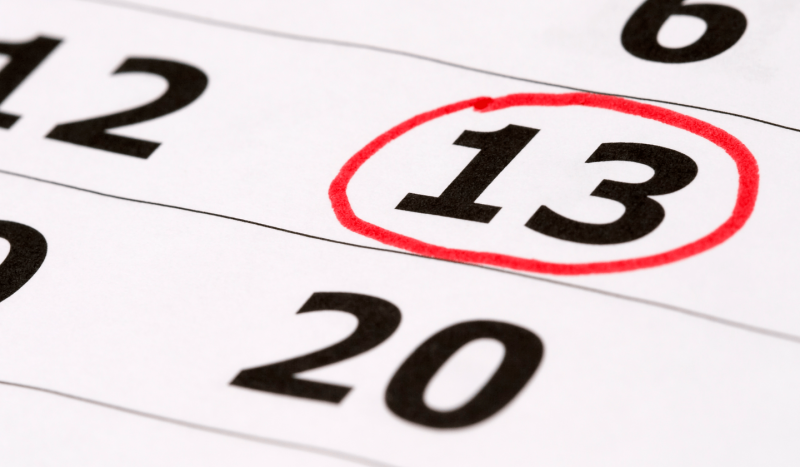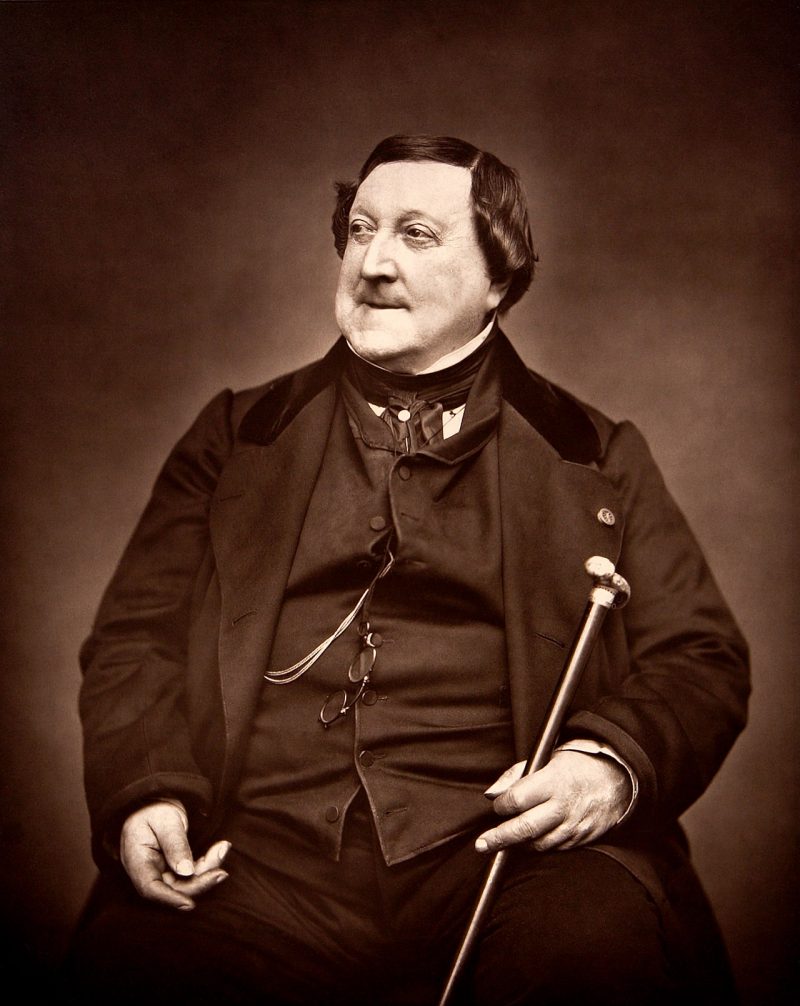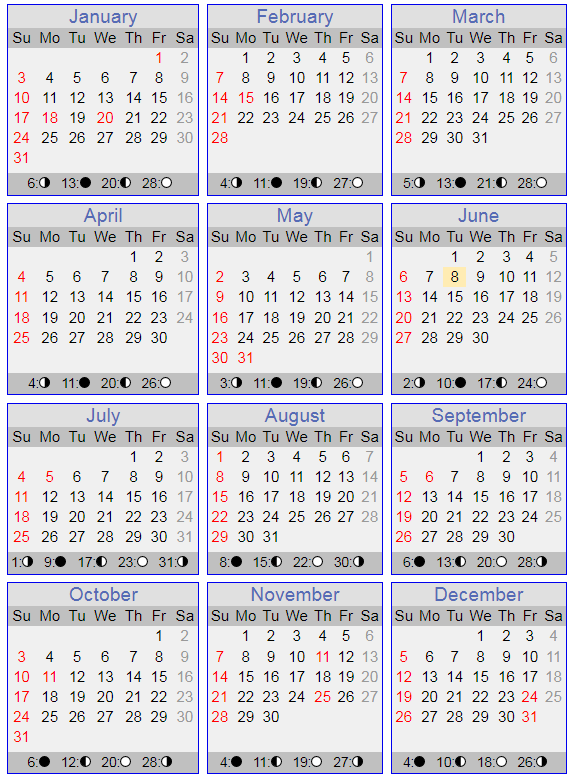
2021 has only one Friday 13th
Whenever a calendar month starts on a Sunday, that month will always have a Friday the 13th. In 2021, August 1 is a Sunday. And, sure enough, the 13th of this month is a Friday. It’s our only Friday the 13th this year. The last calendar year with just one Friday 13th was 2016 (in May). After this year’s solitary Friday the 13th, we’ll have another year with only one Friday 13th in 2022 (in May).
Two Friday the 13ths last occurred in the leap year 2020 (March 13 and November 13, 2020). Two Friday the 13ths will next occur in the year 2023 (January 13 and October 13, 2023).
Three Friday the 13ths last happened in 2015 (February 13, March 13 and November 13, 2015). A triple header (with the same sequence) will repeat 11 years later: February 13, March 13 and November 13, 2026.
This year’s solitary August 2021 Friday the 13th will recur in six years, on Friday, August 13, 2027.
Coincidences involving the number 13
Not that we at EarthSky suffer from friggatriskaidekaphobia – an irrational fear of Friday the 13th – but, gosh darn, last year’s Friday the 13th in November 2020 occurred exactly 39 (3 x 13) weeks before this year’s sole Friday the 13th on August 13, 2021.
But that’s not the end of it. Next year’s sole Friday the 13th on May 13, 2022, will come exactly 39 (3 x 13) weeks after the Friday the 13th on August 13, 2021.
Yikes, these few coincidences involving the number 13 are only the tip of the iceberg. We could cite many more. Are all these Friday the 13ths a super coincidence? Super unlucky? Neither. They’re just a quirk of our calendar.

Friday the 13th in folklore
According to folklorists, there’s no written evidence that Friday the 13th was considered unlucky before the 19th century. The earliest known documented reference in English appears to be in Henry Sutherland Edwards’ 1869 biography of Gioachino Rossini.
Still, Friday has always gotten a bad rap. In the Middle Ages, people would not marry – or set out on a journey – on a Friday.
There are also some links between Christianity and an ill association with either Fridays or the number 13. Jesus was said to be crucified on a Friday. Seating 13 people at a table was seen as bad luck because Judas Iscariot, the disciple who betrayed Jesus, is said to have been the 13th guest at the Last Supper. Meanwhile, our word for Friday comes from Frigga, an ancient Scandinavian fertility and love goddess. Christians called Frigga a witch and Friday the witches’ Sabbath.
In modern times, the slasher-movie franchise Friday the 13th has helped keep friggatriskaidekaphobia alive.

Friday the 13th number play
We have one Friday the 13th in 2021 (August) because 2021 is a common year of 365 days that starts on a Friday. Whenever a common year of 365 days starts on a Friday, it’s inevitable that the month of August will start on a Sunday. And, as mentioned before, any month starting on a Sunday will have a Friday the 13th.

The last time a common year started on a Friday was 11 years ago, in the year 2010. The next time will be six years from 2021, in 2027. Some of you may wonder if there’s some formula that governs how this Friday the 13th drama repeats itself. The answer is yes. Keep in mind that this sole August Friday the 13th year can only happen in a common year of 365 days, and when January 1 falls on a Friday.
Cycles of 6, 17 and 28 years
Any calendar year that happens one year after a leap year will recur in 6, 17 and 28 years. Therefore, if our solitary Friday the 13th year comes one year after a leap year, as it does in 2021, then the days and dates will match up again in 6, 17 and 28 years. Therefore, the years 2027, 2038 and 2049 will all feature a sole August Friday the 13th:
2021 + 6 = 2027
2021 + 17 = 2038
2021 + 28 = 2049
Within the confines of the 21st century (2001 to 2100), we can project this cycle onward:
2049 + 6 = 2055
2049 + 17 = 2066
2049 + 28 = 2077
Then again:
2077 + 6 = 2083
2077 + 17 = 2094
2077 + 28 = 2105 (No! This date is outside the 21st century)
August Friday the 13th in a leap year
By the way, a Friday, August 13, can also happen in leap year of 366 days if that leap year begins on a Thursday. But it won’t be a solitary Friday the 13th. You’ll have a Friday, February the 13th, as well. This will happen for the first time this century in 2032 (February 13 and August 13, 2032), and then 28 years thereafter (February 13 and August 13, 2060). In these 2032 and 2060 leap years, Friday, February 13, comes exactly 26 (2 x 13) weeks before Friday, August 13.
Suppressed leap year perturbs cycle
You might think the year 2105 should present a sole Friday, August the 13th. However, by Gregorian calendar rules, the leap year is suppressed in the century years 2100, 2200 and 2300. Thereby the cycle is perturbed.
The years 2100, 2202 and 2309 present a sole Friday the 13th. Yet, the cycle of 6, 17 and 28 years works within the confines of a given century.
Because the Gregorian calendar has a 400-year cycle, the solitary August Friday the 13th years recur in cycles of 400 years.
As magical as all of this Friday the 13th calendar intrigue appears to be, it’s not supernatural. It’s entertaining number play, even if it may haunt our uncomprehending minds.
Bottom line: Any calendar month starting on a Sunday always has a Friday 13th. In 2021, August 1 is on a Sunday. August 13 must fall on a Friday!
The post August 2021 has a Friday 13th first appeared on EarthSky.
from EarthSky https://ift.tt/3ylfgwg

2021 has only one Friday 13th
Whenever a calendar month starts on a Sunday, that month will always have a Friday the 13th. In 2021, August 1 is a Sunday. And, sure enough, the 13th of this month is a Friday. It’s our only Friday the 13th this year. The last calendar year with just one Friday 13th was 2016 (in May). After this year’s solitary Friday the 13th, we’ll have another year with only one Friday 13th in 2022 (in May).
Two Friday the 13ths last occurred in the leap year 2020 (March 13 and November 13, 2020). Two Friday the 13ths will next occur in the year 2023 (January 13 and October 13, 2023).
Three Friday the 13ths last happened in 2015 (February 13, March 13 and November 13, 2015). A triple header (with the same sequence) will repeat 11 years later: February 13, March 13 and November 13, 2026.
This year’s solitary August 2021 Friday the 13th will recur in six years, on Friday, August 13, 2027.
Coincidences involving the number 13
Not that we at EarthSky suffer from friggatriskaidekaphobia – an irrational fear of Friday the 13th – but, gosh darn, last year’s Friday the 13th in November 2020 occurred exactly 39 (3 x 13) weeks before this year’s sole Friday the 13th on August 13, 2021.
But that’s not the end of it. Next year’s sole Friday the 13th on May 13, 2022, will come exactly 39 (3 x 13) weeks after the Friday the 13th on August 13, 2021.
Yikes, these few coincidences involving the number 13 are only the tip of the iceberg. We could cite many more. Are all these Friday the 13ths a super coincidence? Super unlucky? Neither. They’re just a quirk of our calendar.

Friday the 13th in folklore
According to folklorists, there’s no written evidence that Friday the 13th was considered unlucky before the 19th century. The earliest known documented reference in English appears to be in Henry Sutherland Edwards’ 1869 biography of Gioachino Rossini.
Still, Friday has always gotten a bad rap. In the Middle Ages, people would not marry – or set out on a journey – on a Friday.
There are also some links between Christianity and an ill association with either Fridays or the number 13. Jesus was said to be crucified on a Friday. Seating 13 people at a table was seen as bad luck because Judas Iscariot, the disciple who betrayed Jesus, is said to have been the 13th guest at the Last Supper. Meanwhile, our word for Friday comes from Frigga, an ancient Scandinavian fertility and love goddess. Christians called Frigga a witch and Friday the witches’ Sabbath.
In modern times, the slasher-movie franchise Friday the 13th has helped keep friggatriskaidekaphobia alive.

Friday the 13th number play
We have one Friday the 13th in 2021 (August) because 2021 is a common year of 365 days that starts on a Friday. Whenever a common year of 365 days starts on a Friday, it’s inevitable that the month of August will start on a Sunday. And, as mentioned before, any month starting on a Sunday will have a Friday the 13th.

The last time a common year started on a Friday was 11 years ago, in the year 2010. The next time will be six years from 2021, in 2027. Some of you may wonder if there’s some formula that governs how this Friday the 13th drama repeats itself. The answer is yes. Keep in mind that this sole August Friday the 13th year can only happen in a common year of 365 days, and when January 1 falls on a Friday.
Cycles of 6, 17 and 28 years
Any calendar year that happens one year after a leap year will recur in 6, 17 and 28 years. Therefore, if our solitary Friday the 13th year comes one year after a leap year, as it does in 2021, then the days and dates will match up again in 6, 17 and 28 years. Therefore, the years 2027, 2038 and 2049 will all feature a sole August Friday the 13th:
2021 + 6 = 2027
2021 + 17 = 2038
2021 + 28 = 2049
Within the confines of the 21st century (2001 to 2100), we can project this cycle onward:
2049 + 6 = 2055
2049 + 17 = 2066
2049 + 28 = 2077
Then again:
2077 + 6 = 2083
2077 + 17 = 2094
2077 + 28 = 2105 (No! This date is outside the 21st century)
August Friday the 13th in a leap year
By the way, a Friday, August 13, can also happen in leap year of 366 days if that leap year begins on a Thursday. But it won’t be a solitary Friday the 13th. You’ll have a Friday, February the 13th, as well. This will happen for the first time this century in 2032 (February 13 and August 13, 2032), and then 28 years thereafter (February 13 and August 13, 2060). In these 2032 and 2060 leap years, Friday, February 13, comes exactly 26 (2 x 13) weeks before Friday, August 13.
Suppressed leap year perturbs cycle
You might think the year 2105 should present a sole Friday, August the 13th. However, by Gregorian calendar rules, the leap year is suppressed in the century years 2100, 2200 and 2300. Thereby the cycle is perturbed.
The years 2100, 2202 and 2309 present a sole Friday the 13th. Yet, the cycle of 6, 17 and 28 years works within the confines of a given century.
Because the Gregorian calendar has a 400-year cycle, the solitary August Friday the 13th years recur in cycles of 400 years.
As magical as all of this Friday the 13th calendar intrigue appears to be, it’s not supernatural. It’s entertaining number play, even if it may haunt our uncomprehending minds.
Bottom line: Any calendar month starting on a Sunday always has a Friday 13th. In 2021, August 1 is on a Sunday. August 13 must fall on a Friday!
The post August 2021 has a Friday 13th first appeared on EarthSky.
from EarthSky https://ift.tt/3ylfgwg

Aucun commentaire:
Enregistrer un commentaire